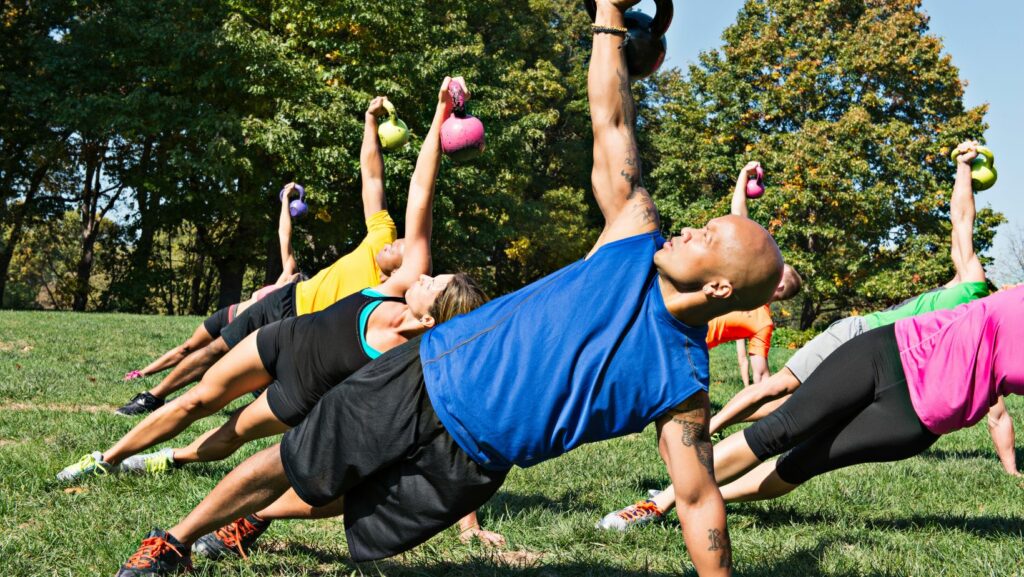Fitness Journey
- Personal Transformation: A fitness journey is not just about physical health; it also leads to mental resilience and self-discovery.
- SMART Goals: Define clear, specific goals using the SMART criteria to provide direction and maintain motivation.
- Baseline Assessment: Assess your current fitness level to set realistic goals and tailor your workout plan accordingly.
- Nutrition Matters: A balanced diet, focusing on macronutrients and hydration, is crucial for fueling workouts and recovery.
- Embrace Variety: Incorporate diverse exercises into your routine to target different fitness aspects and keep motivation high.
- Celebrate Progress: Regularly track achievements and reward milestones to reinforce commitment and foster ongoing motivation.
Embarking on a fitness journey is more than just a pursuit of physical health; it’s a transformative experience that reshapes both body and mind. Many people find themselves at a crossroads, seeking change but unsure where to begin. With the right mindset and a clear plan, anyone can navigate the ups and downs of this personal path.
From setting achievable goals to discovering the best workouts, each step taken is a building block toward a healthier lifestyle. This journey isn’t just about lifting weights or running miles; it’s about cultivating resilience, self-discipline, and a deeper connection to oneself. Whether you’re just starting out or looking to reignite your passion for fitness, the road ahead is filled with opportunities for growth and empowerment.
Understanding Your Fitness Journey
Understanding a fitness journey involves recognizing its personal nature and the unique experiences of each individual. Setting clear goals and assessing fitness levels are crucial components of this process.
Defining Your Goals
Defining goals provides direction and purpose for a fitness journey. Specific, measurable, attainable, relevant, and time-bound (SMART) goals enhance focus. Examples include losing 10 pounds in three months, running a 5K in under 30 minutes, or completing weightlifting sessions thrice weekly. Tracking progress helps maintain motivation and allows for adjustments as necessary.
Assessing Your Current Fitness Level
Assessing current fitness levels establishes a baseline for improvement. This assessment often involves measuring body composition, cardiovascular endurance, flexibility, and strength. Simple tests include the one-mile run for cardiovascular health, body measurements for body composition, and push-up or sit-up counts for strength. Evaluating these metrics enables realistic goal-setting and personalized planning for effective workouts.
Essential Components of a Successful Fitness Journey

A successful fitness journey hinges on strategic planning and discipline. Two essential components include nutrition and exercise, each contributing significantly to overall health and progress.
Nutrition and Diet
Nutrition forms the foundation of any fitness journey. A balanced diet ensures adequate energy levels and supports recovery. Key aspects include:
- Macronutrients: Carbohydrates, proteins, and fats. Aim for a ratio that aligns with personal goals, such as higher protein for muscle building or complex carbs for endurance.
- Micronutrients: Vitamins and minerals. Incorporate a variety of fruits and vegetables to meet daily requirements crucial for overall health.
- Hydration: Water intake. Staying hydrated enhances physical performance and assists with recovery.
- Meal Timing: Pre- and post-workout meals. Consuming the right nutrients at these times boosts energy and supports muscle repair.
Understanding personal dietary needs, possibly through consulting a nutritionist, helps tailor a diet plan that fuels the body effectively.
Exercise and Training Regimens
Exercise serves as the cornerstone of a fitness journey. A well-structured training regimen promotes physical progression and mental resilience. Important components include:
- Types of Exercise: Incorporate strength training, cardiovascular workouts, and flexibility exercises. This variety addresses different fitness aspects and prevents boredom.
- Progressive Overload: Gradually increasing workout intensity. Adding weight, repetitions, or exercise duration enhances strength and endurance over time.
- Consistency: Establish a regular workout schedule. Consistency fosters habits that lead to long-term success.
- Rest and Recovery: Allow adequate recovery time between workouts. Rest is essential for muscle repair and overall growth.
Following a personalized training plan, possibly designed with a fitness professional, ensures effective and safe progression throughout the fitness journey.
Overcoming Obstacles in Your Fitness Journey

Obstacles often arise during a fitness journey, presenting both challenges and opportunities for growth. Addressing these obstacles head-on fosters resilience and determination.
Dealing with Motivation Challenges
Staying motivated proves crucial in a fitness journey. Setting small, achievable milestones enhances motivation by providing frequent accomplishments. Creating a support system, such as workout partners or groups, helps maintain accountability. Engaging with fitness communities online can also inspire commitment. Incorporating variety into workout routines minimizes boredom and promotes enthusiasm. Celebrating progress, no matter how small, reinforces the motivation to continue pursuing fitness goals.
Managing Setbacks and Plateaus
Setbacks and plateaus are common in a fitness journey and can be discouraging. Recognizing that these moments are temporary helps in maintaining focus. Adjusting training programs or trying new workouts can reignite progress. It’s essential to reassess goals and modify them as fitness levels change. Incorporating recovery strategies such as rest days or cross-training prevents burnout and injury. Seeking guidance from fitness professionals can provide insights and strategies to overcome these hurdles effectively.
Celebrating Milestones Along the Way

Celebrating milestones fosters motivation and reinforces commitment in a fitness journey. Recognizing achievements creates a sense of fulfillment and encourages continued progress.
Tracking Progress
Tracking progress plays a crucial role in evaluating fitness journey success. Individuals can use various methods, such as:
- Fitness Apps: These enable users to log workouts, meals, and metrics over time.
- Journals: Writing daily entries helps document feelings, challenges, and accomplishments.
- Wearable Devices: Fitness trackers monitor physical activities, heart rates, and sleep patterns.
By regularly reviewing this data, individuals gain insights into their improvements and make necessary adjustments to their goals or training plans.
Rewarding Yourself
Rewarding personal achievements reinforces positive behavior throughout the fitness journey. Appropriate rewards may include:
- Treats: Indulging in a favorite healthy meal or snack can celebrate reaching a goal.
- Activities: Engaging in enjoyable activities, such as a spa day or a fun class, marks milestones.
- Gear: Purchasing new workout gear or fitness equipment not only boosts motivation but also enhances the training experience.
Establishing a reward system aligns with reaching specific milestones, thus promoting ongoing commitment and enjoyment in the fitness journey.
Growth and Empowerment
Embarking on a fitness journey is a deeply personal experience that fosters growth and empowerment. It’s about more than just physical change; it’s a holistic transformation that nurtures resilience and self-discipline. By setting realistic goals and crafting a balanced approach to nutrition and exercise, individuals can navigate challenges effectively.
Recognizing milestones and tracking progress not only enhances motivation but also reinforces commitment to the journey. With the right mindset and support, anyone can achieve their fitness aspirations. Embracing the process and celebrating achievements along the way makes the journey rewarding and sustainable.



